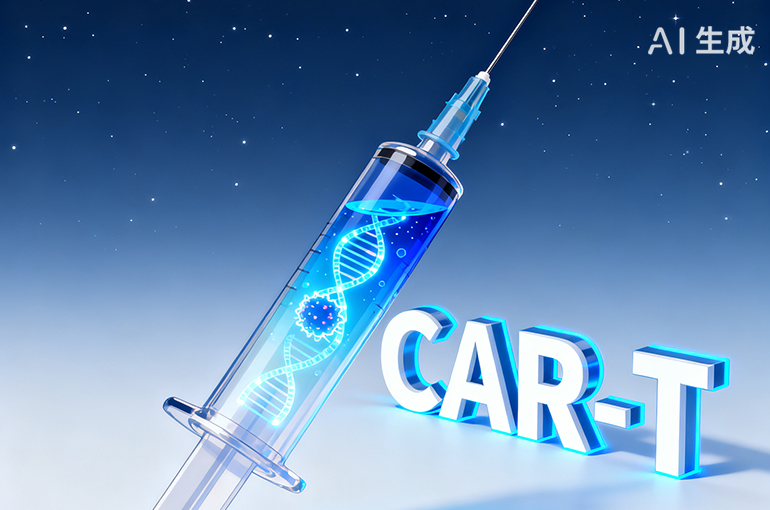 Next-Gen In Vivo CAR-T Tech to Cut Treatment Costs by 90%, Experts Say
Next-Gen In Vivo CAR-T Tech to Cut Treatment Costs by 90%, Experts Say(Yicai) Sept. 23 -- The next-generation in vivo chimeric antigen receptor-T technology is rapidly developing and will likely reduce treatment costs, which run into the millions of Chinese yuan (hundreds of thousands of US dollars), by as much as 90 percent, according to industry experts.
"CAR-T therapies are shifting from ex vivo production to in vivo generation," Dong Ao, an investor at Legend Capital, said at a recent sub-forum of the second China Cell and Gene Therapy Conference. "In vivo CAR-T has become a focal point of interest for capital and industry."
CAR-T tech has achieved remarkable success in hematological malignancies, cancers that have long lacked radical cures. However, its high cost and complex ex vivo manufacturing process have limited its widespread adoption.
"CAR-T cell therapy requires extracting a patient's immune cells for genetic modification outside the body before reinfusing them," noted Li Zonghai, founder of CARsgen Therapeutics Holdings. "The production process for this type of 'living drug' cannot be standardized on a large scale like that of traditional drugs, leading to a single treatment cost exceeding one million yuan."
However, the in vivo CAR-T approach does not require cell extraction, but instead involves injecting a vector, such as a virus or lipid nanoparticle, carrying the CAR gene directly into the patient, according to the experts. This process "re-engineers" the T cells within the patient's body, enabling them to recognize and attack cancer cells, they noted.
"The cost is expected to drop to one-tenth, significantly improving accessibility," Mei Heng, a professor at Huazhong University of Science and Technology's Union Hospital hematology department, said regarding his experience after the first in vivo CAR-T clinical trial.
"Traditional CAR-T therapy takes at least one to three weeks from blood collection to reinfusion, a timeframe many patients cannot afford to wait," Mei pointed out. "In vivo CAR-T requires only one or two intravenous injections and can show effects in as few as three days."
Multiple Chinese companies are entering the in vivo CAR-T race, with technological approaches mainly divided into viral and non-viral vectors. Thanks to the development of in vivo CAR-T tech, patients may only need one injection, like a standard shot, for efficient and long-lasting cell therapy.
Editor: Martin Kadiev